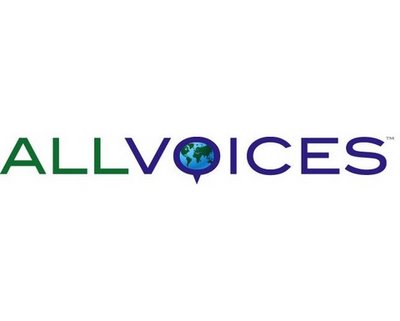
New media is an interesting place to be these days, and there are no shortage of interesting—and unproven—business models cropping up every day. The latest is AllVoices, a platform that allows would-be journalists to blog and publish photos about local and national news stories.
I just read today on TechCrunch that the startup ($9M total funding) is setting up “news desks” across 30 cities outside the US. According to the blog post on TC, “with the news desks, citizen reporters will be able to receive assignments from professional journalists.”
It’s an interesting experiment that appears to be making significant inroads, at least initially. The web site is already receiving about 5 million page views per month, and is rivaling traffic levels of heavyweights such as CNN’s iReport, also a citizen journalism outlet.
Based out of San Francisco, AllVoices will soon increase coverage in the US as well.
Several questions remain. Do articles go through an editorial process to ensure facts are accurate? What is the long-term financial model for AllVoices – will it rely solely on advertising? Or something completely different?
I checked out the AllVoices web site and found a rag-tag collection of stories, some obviously more interesting to me than others. When I click on sports I read about Tiki Barber’s Tiger impresario. But then I was served up stories about cricket and other headlines irrelevant to the Bay Area (or even the US). I suppose there may be a way to indicate my region, and narrow the focus.
Writing quality varies. However, I did find at least a few thoughtful, well-written pieces.

I suspect the Huffington Post played a part in influencing the founder’s vision. Everyone wants to be HuffPo. The pitch is simple: Like a HuffPo for sports; a HuffPo for news; a HuffPo for people with itching problems. That kind of thing. Given Ariana Huffington’s success in new media, it’s no surprise that everyone wants to copy that model.
However, there are a few things that make Huffington Post work that are not easily replicated.
The first of course is her monster-size personality (for better or worse) that gives her and the publication massive visibility, not to mention copious amounts of air time across the nation. She is a celebrity. That helps. She’s also a strong writer and communicator. That can help shape the personality of the web site and editorials; will something like AllVoices be able to offer a “personality” of some kind? Without it I fear it’s not easy for readers to identify. And people like to associate with things they understand, that stand for something they believe in: shared values, beliefs, humor, etc.
And because of the Huffington aura, she attracts a cadre of celebrities and well-known writers who further increase reach.
Nevertheless, citizen journalism is a slightly different beast. It is supposed to be the voice of the people. Us regular Joes out there fighting traffic, helping old ladies cross the street and filming plane crashes. No doubt there’s a place for it. Why not? After all, some of the most compelling human drama, and heart breaking moments come from regular people making regular observations, that occasionally transcend the mundane (The stunning video out of the Iraq uprising last year, for example. The despair, then hope in Haiti.)
For a new media experiment closer to home, check out The Bay Citizen, a new non-profit project between Berkeley and the New York Times; a similar effort, but with hired writers, and one that I predict will feature an all-important editorial tone and personality.


